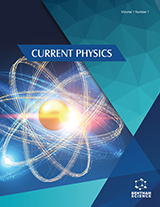Abstract
Sleep issues in space were the subject of this chapter. Circadian rhythms were described and discussed, and their importance to sleep in space explained. Related topics chronobiology and body clocks were similarly also covered. The contemporary space sleeping accommodations were explored, and the fact that spacefarers sleep in shifts was noted. Astronauts are supposed to get eight hours of sleep nightly, but the mean average is probably closer to 6.5 hours. The task and behavioral consequences of sleep deprivation were discussed, and the fact that astronauts frequently suffer insomnia was documented. Solutions to sleep deprivation were assessed, and the Mission Control wake-up call documented.
Keywords: Biological clock, Bloomberg News, Center for Chronobiology, chronobiology, Circadian rhythms, Discovery Channel, enriched light, fatigue, insomnia, Institute for Biomedical Research, melatonin, moonlight, Mars Exploration Rover Mission, National Space Biomedicine Research Institute, Russian Academy of Science, sleep deprivation, Thomas Jefferson University, Velcro.













